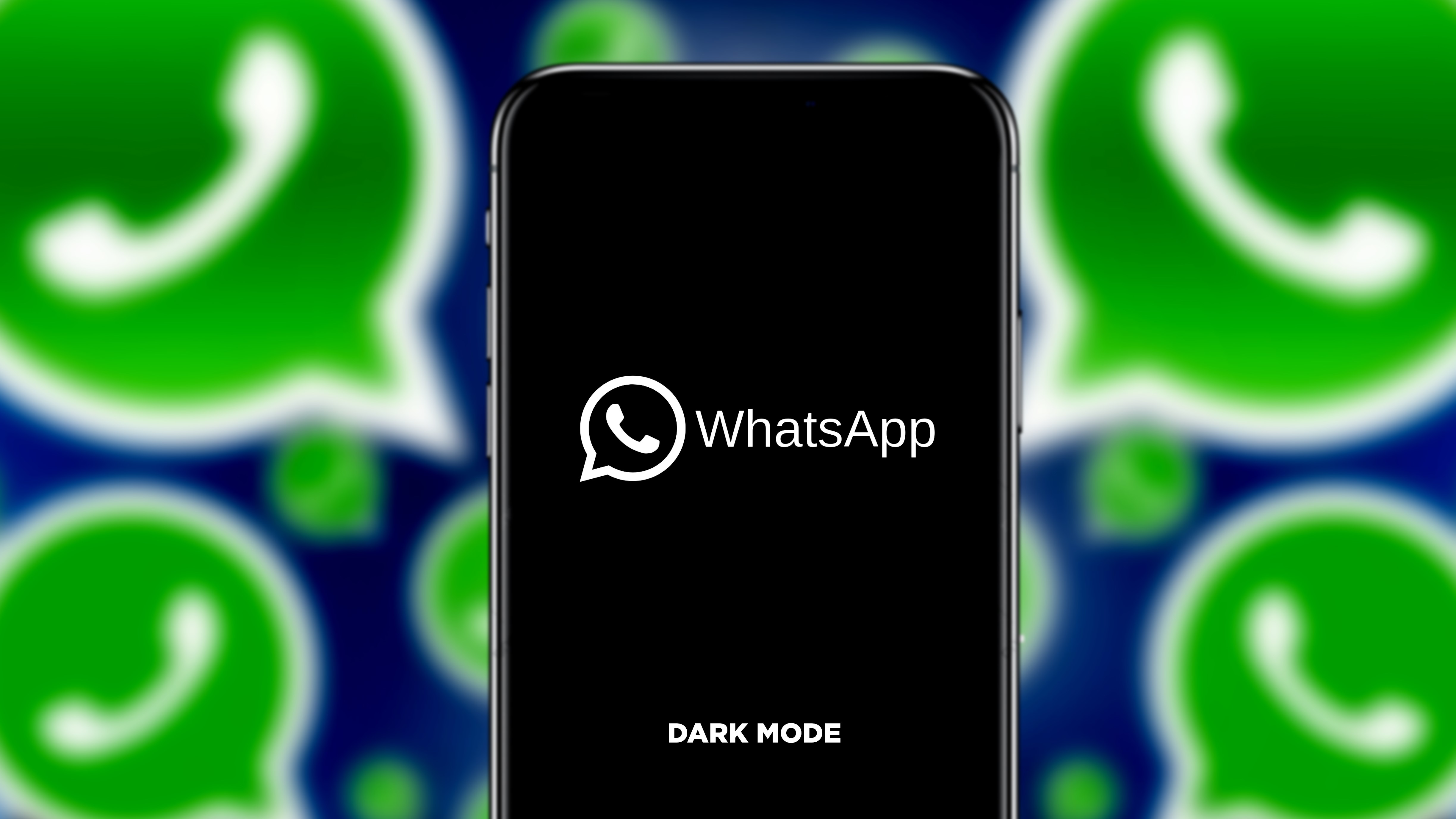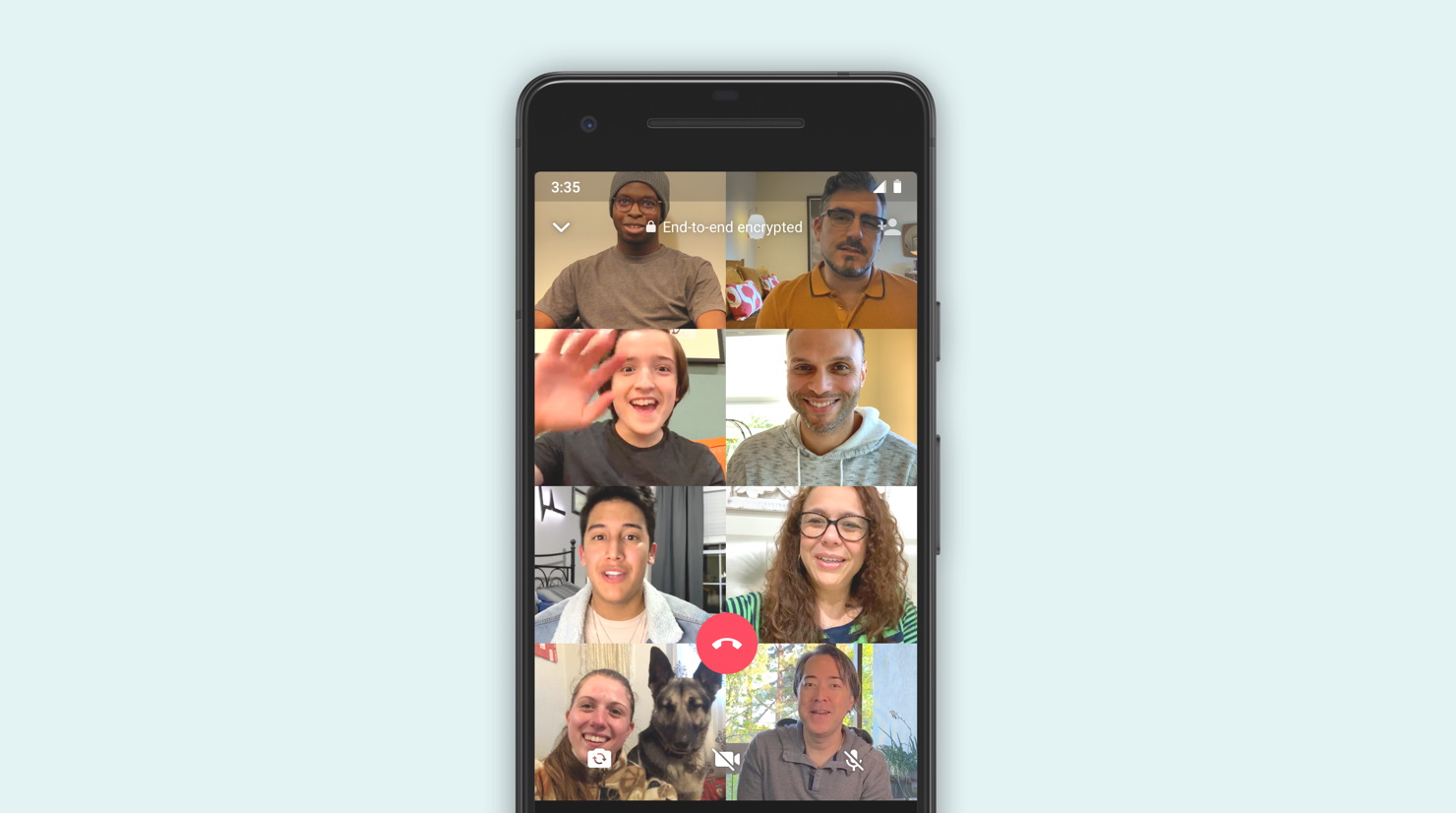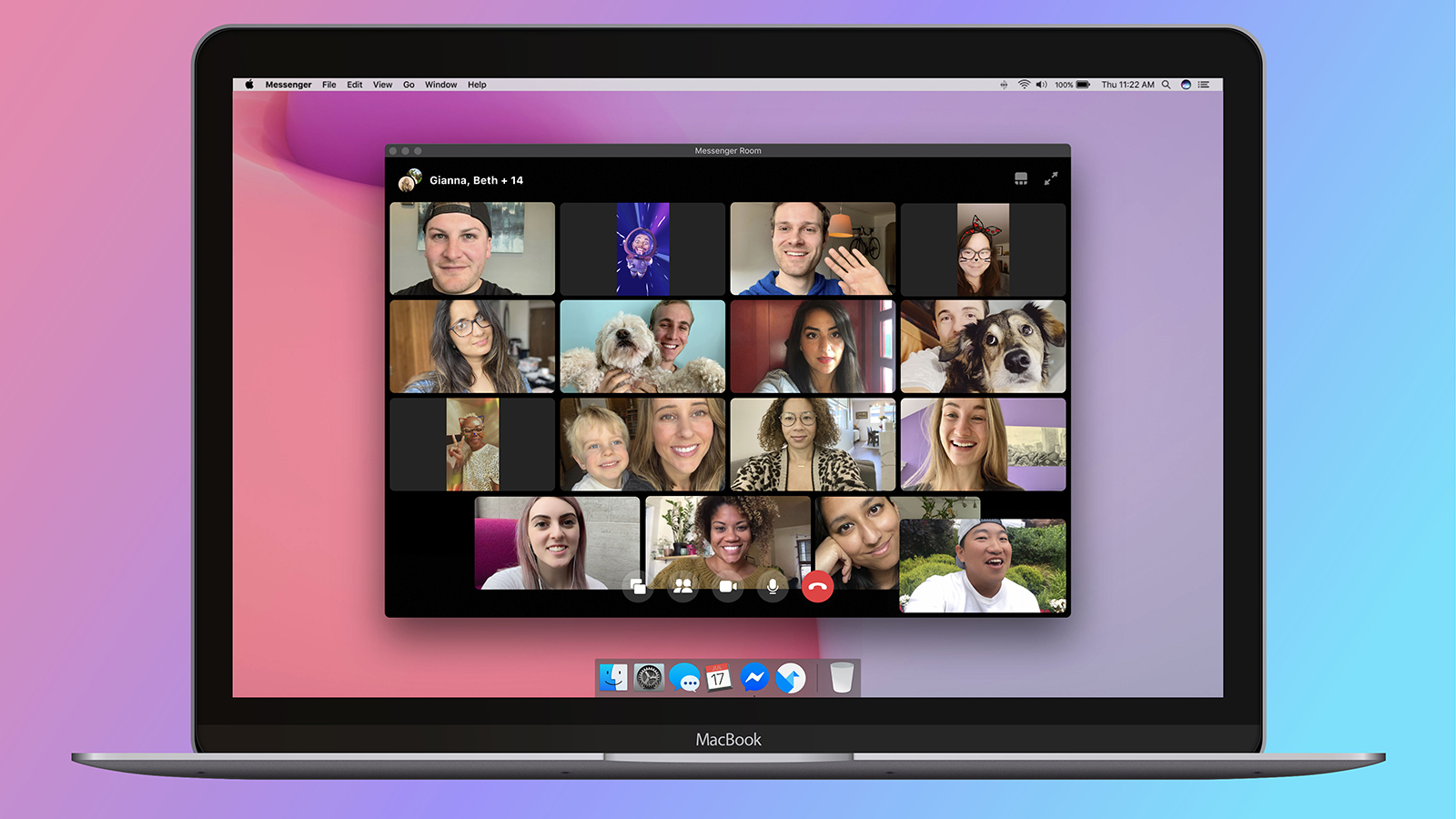What's next for WhatsApp: new features and tools on the horizon

It’s been a busy few months for WhatsApp. In February, the app’s long-awaited dark mode arrived, accompanied by a tongue-in-cheek video soundtracked by a rare recording of Paul Simon’s The Sound of Silence. It was no mean feat – creating a new look for an app used by 1.5 billion took months of work, and the fanfare was justified – but the developers soon had a far bigger challenge on their hands: the coronavirus crisis.
With physical contact banned throughout much of the world, developers had to move fast to keep up with the demands of millions of users depending on its services to keep in touch. Features like animated stickers were seemingly pushed to the back burner, and video calls came to the fore.
"Over the course of the COVID-19 pandemic we have seen that the use of voice and video calls has increased substantially on WhatsApp,” a WhatsApp spokesperson told TechRadar.
“We expanded voice and video calling to eight participants in order to help bigger families and groups of friends stay connected at this difficult time, safe in the knowledge that their private calls are protected by end to end encryption."
Messenger Rooms
WhatsApp’s video chat service will get a further boost very soon with the integration of Facebook’s newly released Messenger Rooms. As its name suggests, Rooms was first launched as part of Facebook Messenger, but the company is integrating it into other apps and products too, including WhatsApp, Instagram and Portal devices.
Rooms differs from WhatsApp’s video chats in a number of ways, allowing up to 50 people to pop in and out of a conversation in an ad-hoc way. Rather than scheduling a meeting at a specific time, as you would in Zoom or Google Meet, you can simply open a room and friends can drop in if they happen to be around – more like a lounge than a boardroom or a phone call.
Tiffany Dohzen, product manager for Messenger Rooms, told TechRadar about her experience making the new app, and what sets it apart from tools like Zoom, Skype and Google Meet. She explained that while Facebook had been exploring ways to expand further into video chat for some time, the coronavirus pandemic was what really kickstarted development.
Sign up for breaking news, reviews, opinion, top tech deals, and more.

“The idea of rooms as a product came around once we realised the accelerating needs for a product where you can spontaneously join and have hangouts really in the last few months,” she said.
“Some of the cool things, beyond just video calls, are a lot of safety controls. We put huge value on not just making sure Rooms was fun, but also really safe. The creator can lock the room, kick someone out if they are misbehaving, and if you’ve blocked someone on Facebook they can’t join the Room.
“We’ve also added lots of collaborative features, cool effects on the mobile apps, and new ones like lighting and backgrounds. The backgrounds are really cool. Some are animated, you can move them around.”
Links to Messenger Rooms have already been spotted in WhatsApp beta releases for iPhone and Android, and although we don’t yet know when it will be fully integrated, the teams are wasting no time.

As Dohzen explains, the Messenger Rooms team themselves are using the tool to keep in touch on a daily basis, which has resulted in faster development than might have been possible in ‘normal’ times.
“It’s early days,” she explained. “We want to adapt and respond to what people need. We’re really excited that in a time when people are working remotely we were able to launch a product remotely using the product itself.
“It’s really rare that you get to use a product like this [every day] because you need it. We ended up getting it to a place of polish much faster than if we hadn’t been using it remotely. Seeing it evolve into different use cases and feeling that we have that universal access – everyone can use it for free without worrying about time limits.”
Stickers, encrypted backups and more
So what else is on the way? The previously mentioned animated stickers haven’t been spotted since April, when they were found by the ever-vigilant writers at WABetaInfo, but they seem to be well into development might still appear later this year once things have settled down into a ‘new normal’.
New automatic download rules look like another very handy addition. If and when these are implemented, they would prevent frequently forwarded images, videos and documents from being downloaded automatically, saving your phone’s precious storage space.
Business users are likely to get some attention as well, as encrypted backups and QR codes have both appeared in a recent beta. Once implemented, this would allow iPhone users to choose whether their backups are encrypted on iCloud, and set a password that would be required for the backups to be recovered. Businesses would also be able to share their contact details with customers via a scanned code displayed on-screen.
However, with the continued demand for video conferencing and chat tools, it looks like Messenger Rooms shortcuts will be the next big feature to arrive in WhatsApp.
“Right now it’s rolled out worldwide through Messenger,” explained Dohzen, “Messenger on the desktop or apps. We’re working on launching it from WhatsApp and Instagram – those are already in testing. That’s the biggest. And it will be coming to portal – the ability to create a room from your Portal, [which has] a bigger screen – bur we don’t have a date specifically for it yet.”
We’ll keep you posted as soon as we do.

Cat is TechRadar's Homes Editor specializing in kitchen appliances and smart home technology. She's been a tech journalist for 15 years, having worked on print magazines including PC Plus and PC Format, and is a Speciality Coffee Association (SCA) certified barista. Whether you want to invest in some smart lights or pick up a new espresso machine, she's the right person to help.